Books
Books
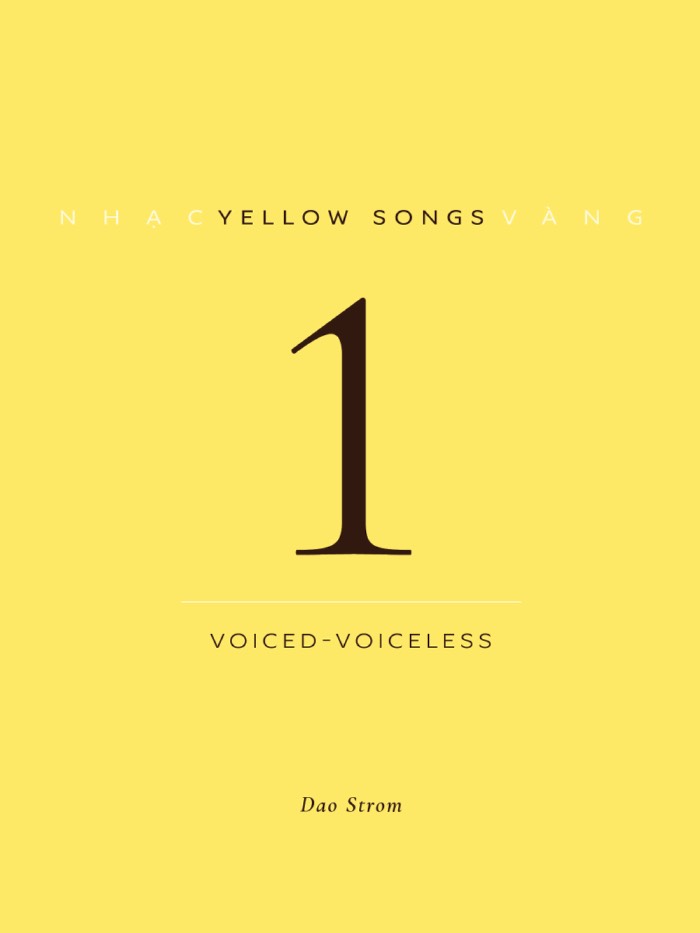
Yellow Songs 1: Voiced-Voiceless
Fifty years after the fall of Saigon, Dao Strom’s Yellow Songs vibrates with the ramifications and ripples of Empire. Each of the four Yellow Songs books reckons with the intimate consequences of the colonial project, reconfiguring them into complex and lucid, literal and figurative songs of selfhood. Embodied, critical, wholehearted, collective, personal, genre-defying—Yellow Songs renders the brute force of history with tender precision. Art book quality printing in full color with felt paper inserts.
Yellow Songs 1: Voiced-Voiceless unearths, unwinds, un-bodies the violence of stigma, reclaiming the ventriloquized voice of David Bowie's "China Girl” through a lyric-critical essaying (assaying) of cultural tropes, racialized and gendered power plays, and memory.
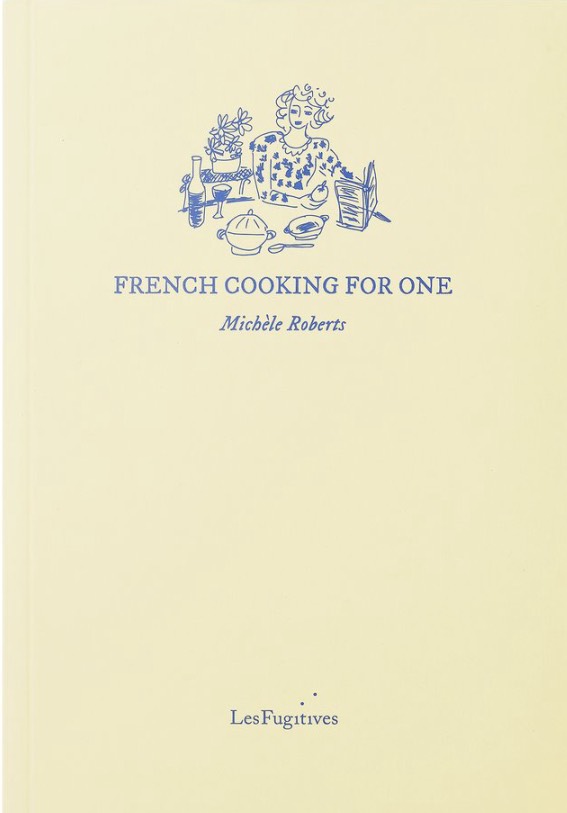
French Cooking for One
French cuisine, classic though it is, still holds delicious surprises. From quick bites for busy days to sumptuous main courses for those who enjoy spending more time in the kitchen, the focus throughout is on dishes that are simple and fun to prepare, and results that are mouthwatering to contemplate and, of course, to eat. A unique work of literary and culinary joie de vivre, part food memoir, part recipe book, French Cooking for One is Michèle Roberts' first cookbook, and a quirky take on Édouard de Pomiane's ten-minute cooking classic. Once a food writer for the New Statesman, Roberts was born in 1949 and raised in a bilingual French-English household, learning to cook from her French grandparents in Normandy. Her love of food and cookery has always shone through in her novels and short stories.
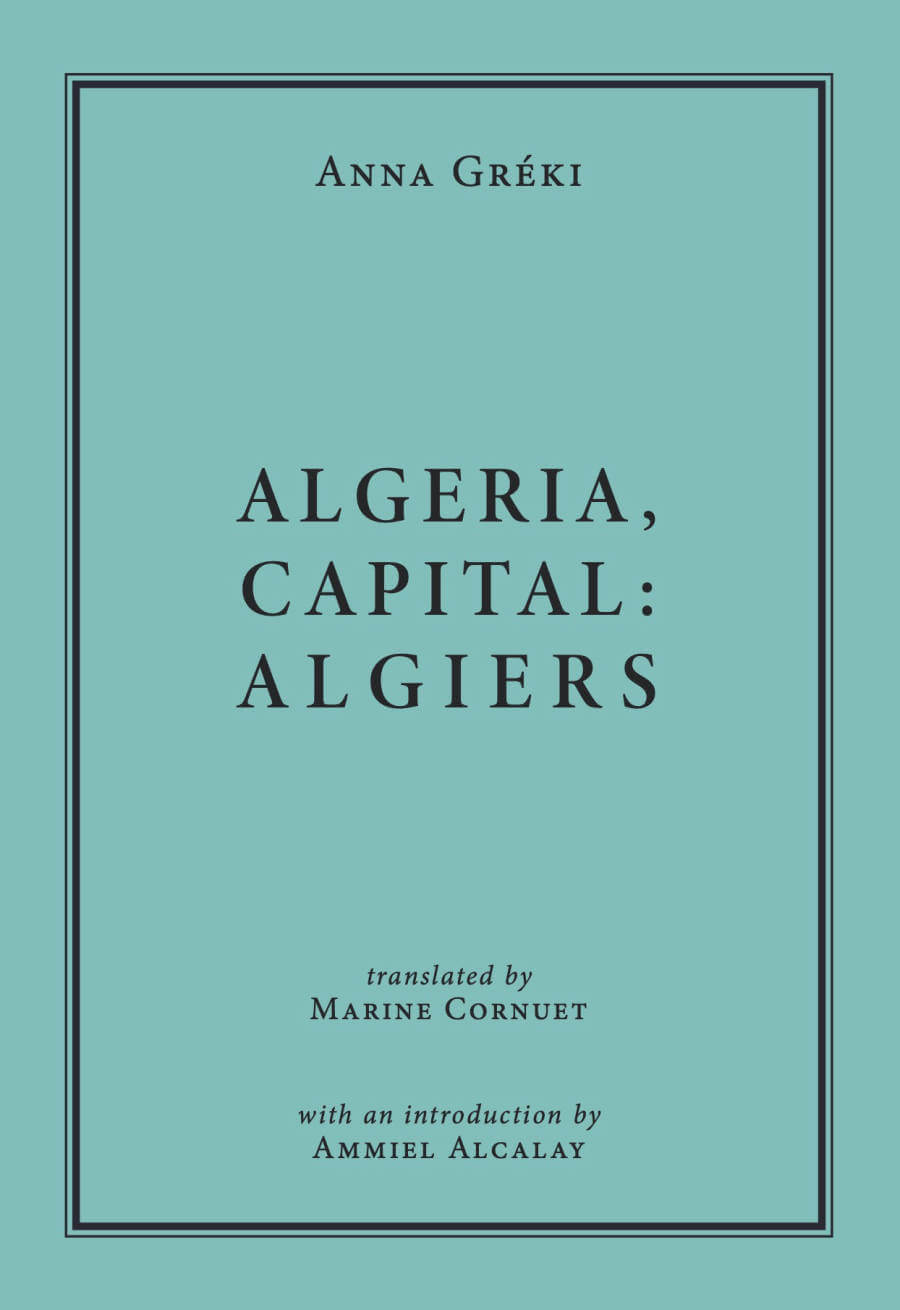
CUNY Center for the Humanities
Algeria: Capital Algiers
Algeria, Capital: Algiers by Anna Gréki is co-published by Pinsapo Press and CUNY Lost & Found, translated by Marine Cornuet, and introduced by Ammiel Alcalay.
Anna Gréki (1931-1966) was an Algerian poet of French descent. A member of the Algerian Communist Party, she was arrested and imprisoned for her participation in the Algerian liberation struggle in Algiers, in 1957. Algérie, capitale Alger, a collection of poems written during Gréki's imprisonment, was published in 1963 in a French and Arabic bilingual edition. Algeria, Capital: Algiers makes this work available to English readers for the first time.
"Anna Gréki was a particularly inconvenient pied noir—not loyal enough for the French colonists and too compromised for the Algerian nationalists—and so she was shunted to the margins of Algerian literary history. Nevertheless, it’s time she takes her place at the center of that narrative, and these accomplished translations constitute a necessary English-language introduction to this secret garden of Maghrebi poetry. Gréki’s poetry is electrified by the heady heights of the war of liberation, but arguably it finds its truest expression in her paeans to the wild hills and impregnable peaks of the Aurès mountains, where she was born and where she found a sense of peace which otherwise eluded her in her brief life." —André Naffis-Sahely
“Nothing happens here but everything burns.” From the prison where she was tortured by French authorities in 1950s Algeria, Anna Greki stays in touch, feverishly, with “this world of vulnerable flesh.” Addressed to her friends and comrades in struggle, to the land and the leaves and the birds, these poems defy “the war, this male ax,” invoking the future with “a trust so total / I can almost touch it.” Marine Cornuet’s translation deftly conveys Greki’s intimate language of the senses, to “transcribe with words what is done without them.” —Omar Berrada
"How fitting that a bilingual edition of Anna Gréki’s poems should be published now: a French poet born in Algeria, anti-colonialist (imprisoned for that) as Algeria battled for independence, writing in French, like Kateb Yacine, to show her freedom from French hegemony, but also her freedom as a woman writer to forge a transcendent and engaged poetics." —Marilyn Hacker
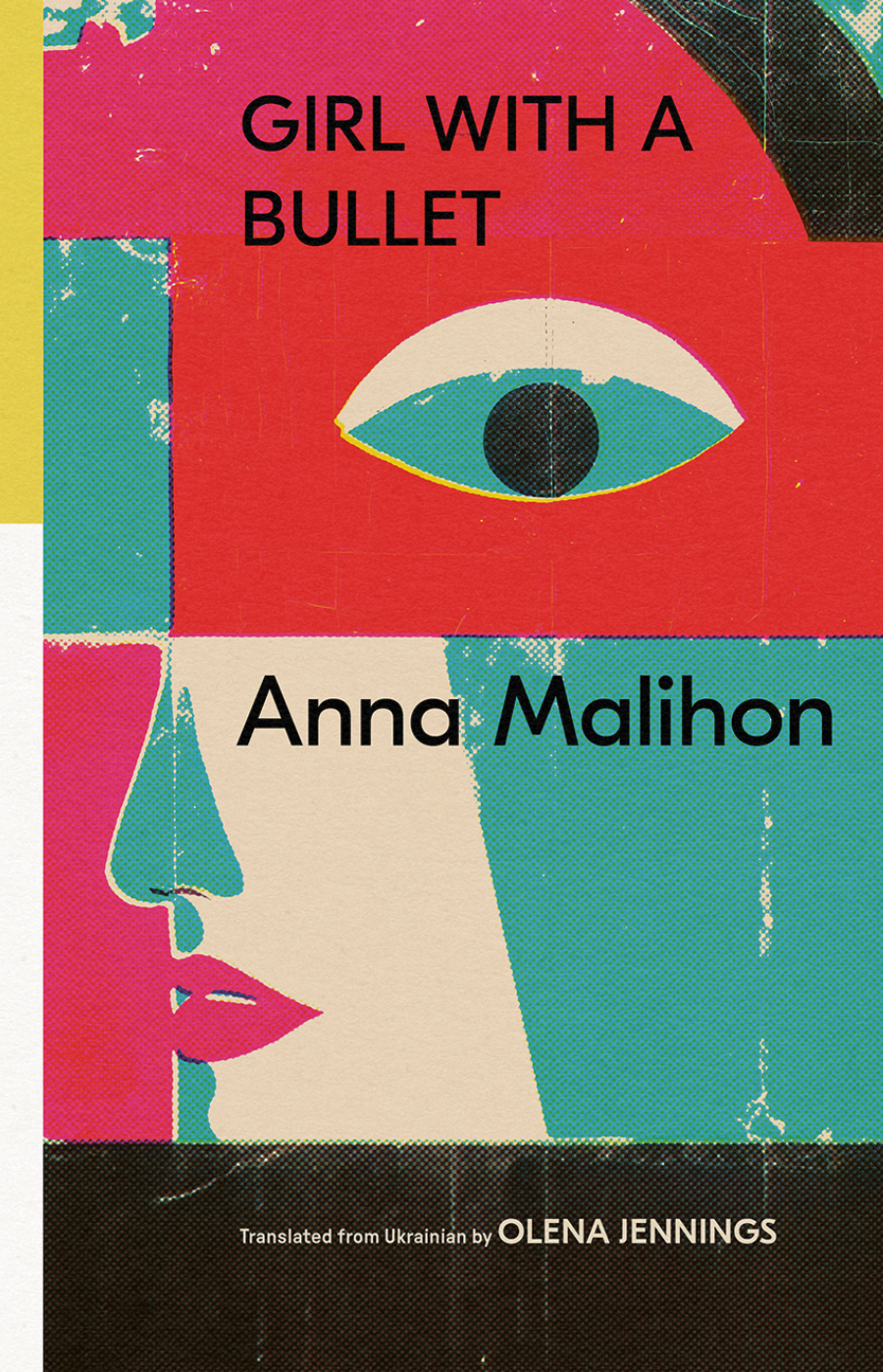
Girl With a Bullet
Ukrainian poet Anna Malihon’s English-language debut gathers daring, resilient, open-eyed poems written before and after Russia’s full-scale invasion. The difficult fates voiced by the protagonists of Malihon’s poems intertwine with her own experience, weaving an alarming but beautiful world where the young grow old and love is met with war. This world, at first shocking, holds the reader in suspension, compelling a desire to rethink and reread. With deft allegory and startling metaphor, Malihon crafts a poetry that seeks to influence the course of events, to reroute history.
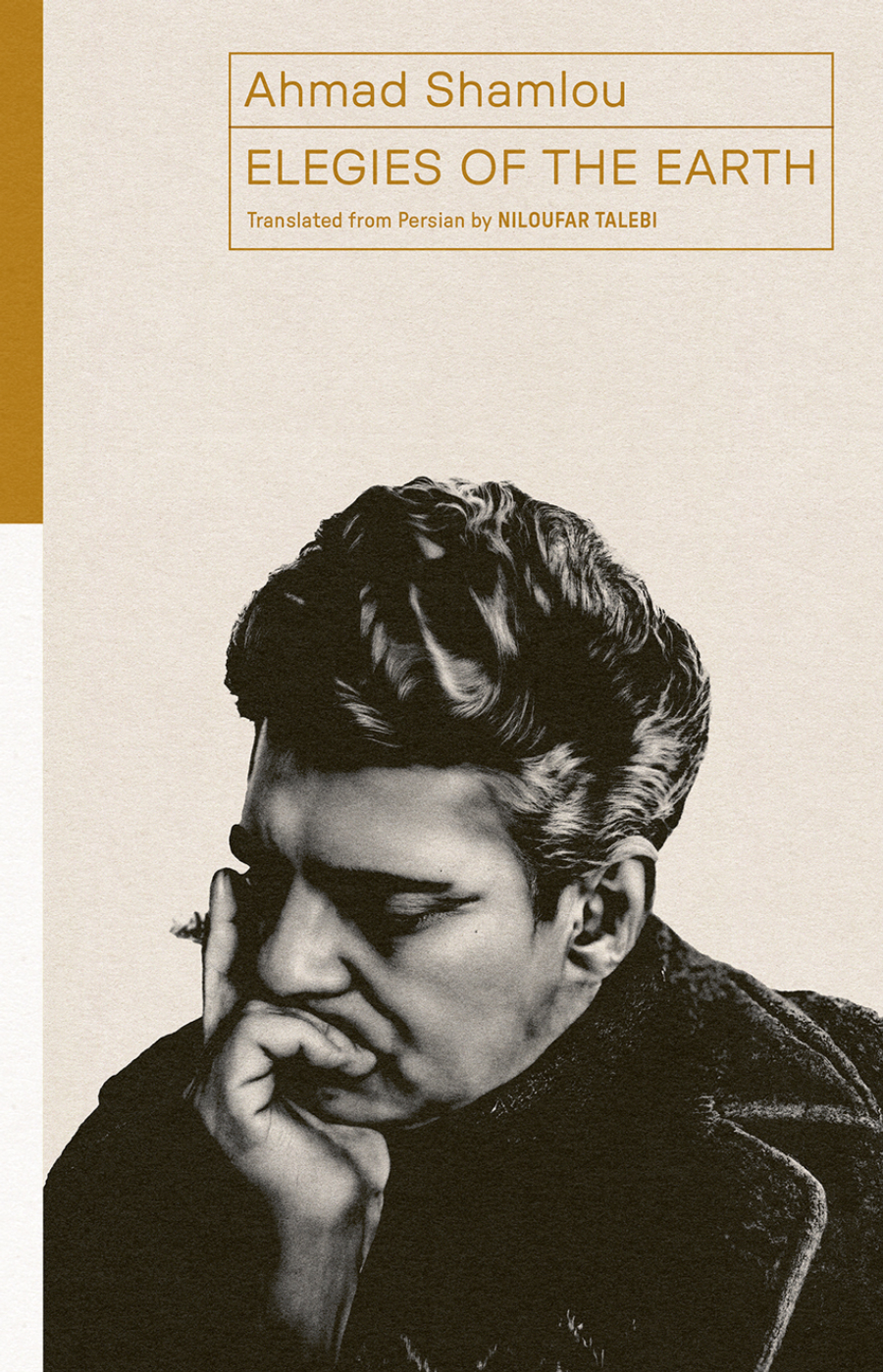
Elegies of the Earth
Ahmad Shamlou, Niloufar Talebi
A sweeping centennial edition of Iran’s iconic twentieth-century poet of liberty, whose work shaped modern Persian poetry. Known for his political engagement and deep humanism, and his pivotal role in Persian poetry’s modernist turn toward free verse, Ahmad Shamlou (1925–2000) crafted poems that carried both lyrical intimacy and cultural force. A central, defiant voice in Iran’s modern literary history, Shamlou championed the power of poetry as an instrument of liberation. His work, long suppressed in his homeland, remains urgent for readers everywhere confronting censorship, exile, and erasure. This bilingual edition honors Shamlou’s centennial with the most expansive selection of his poetry to date in English, encompassing his wide thematic range: from fierce protest to intimate love, mythic storytelling to existential reflection. Niloufar Talebi’s vibrant translations and deeply researched commentary shine new light on Shamlou’s legacy and his relevance today.
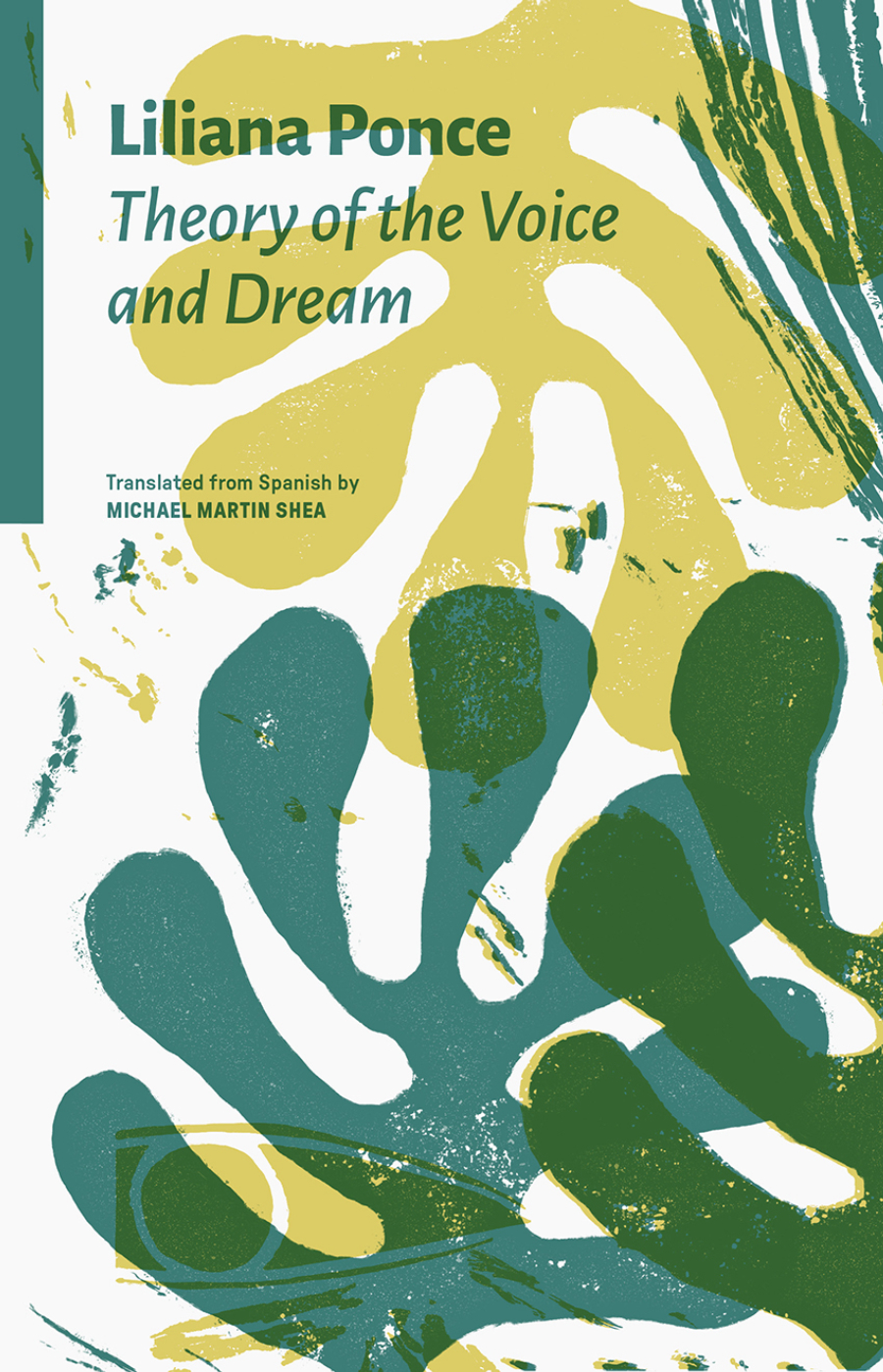
Theory of the Voice and Dream
Liliana Ponce , Michael Martin Shea
Obsessing on the relationship between creation and absence, Argentine poet Liliana Ponce presents an unsettling meditation on body, language, and self. For the first time in English, this edition brings together Ponce’s serial poems from the closing years of the twentieth century, the widely anthologized Theory of the Voice and Dream and Fudekara, a shorter sequence written in response to a Japanese calligraphy course. In these major works, Ponce questions the nature of writing itself, of how to write when to write today is an emptiness, or when mouth and voice cannot find each other. Breaking with Argentine poetic conventions, Ponce charts a new model for poesis—oneiric, embodied, and urgent. As she says, I write so I don’t have to speak, so I don’t have to watch.
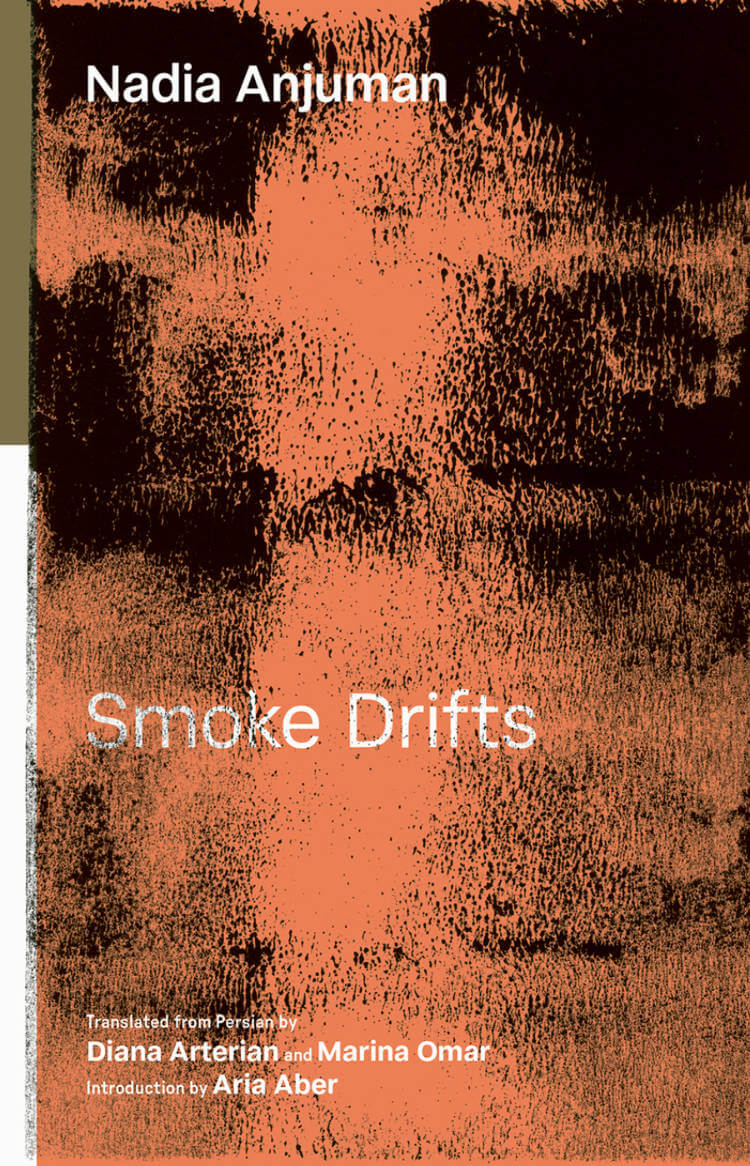
Smoke Drifts
Nadia Anjuman, Diana Arterian and 1 more
Afghan poet Nadia Anjuman (1980-2005) drew on the lineage of Persian and Sufi writing and her life under Taliban rule, attending to love, oppression, myth, and devotion through lyrics that both embrace and resist tradition. Anjuman grew up in the Herat, Afghanistan, a city known for centuries for its poetry. While the Taliban was in power, Anjuman met with other women in what appeared to be a needlepoint school, one of the few sanctioned pastimes for women, to secretly discuss literature and poetry. After the fall of the Taliban, Anjuman was finally able to attend university. She wrote and published a celebrated volume of poetry and was set to publish another before her early death due to domestic violence. Selections from both of Anjuman’s collections are presented here for the first time in English.
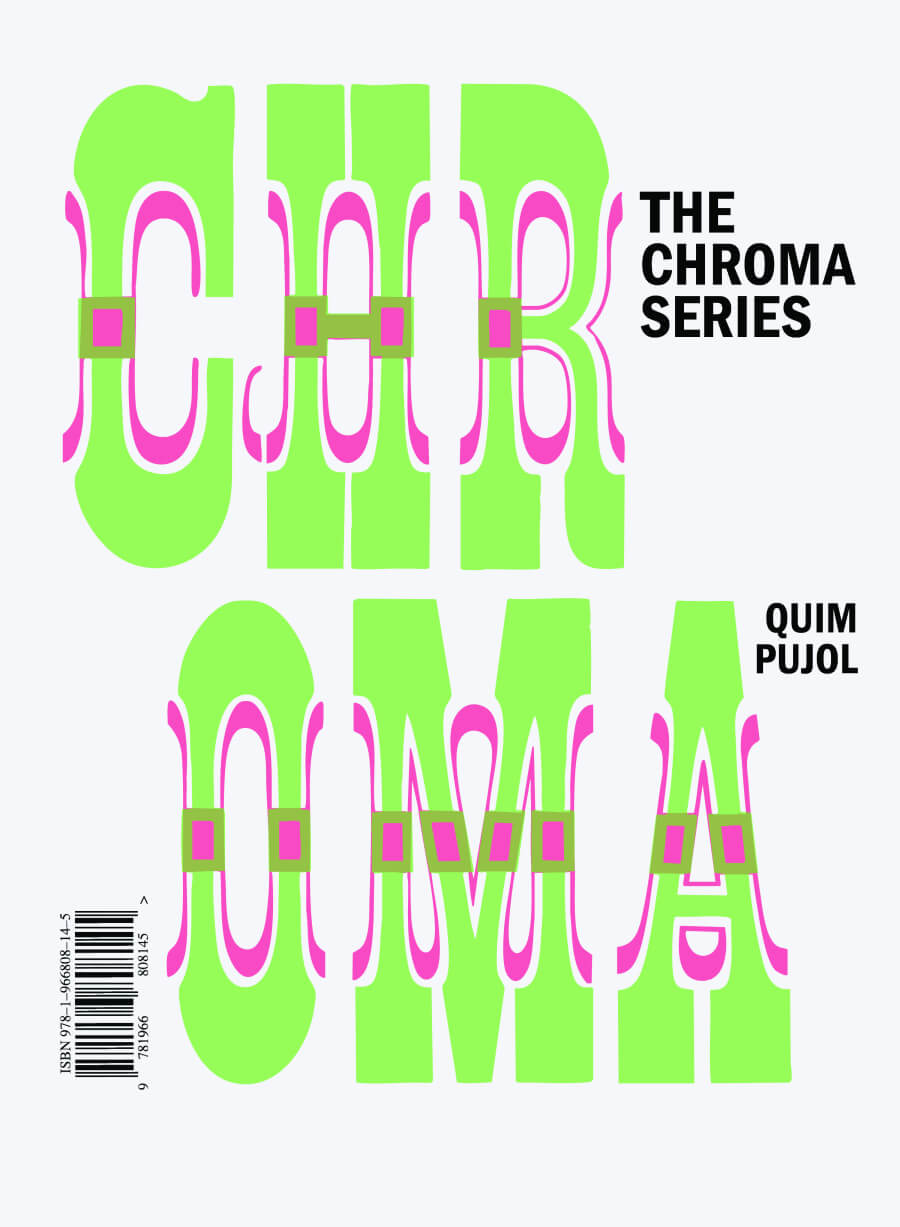
The Chroma Series
The Chroma Series lists elements of reality and systematically changes their color to evoke monochrome universes. The resulting poems may be conceived as mental films where quick-change art coexists with nonsense and politics.
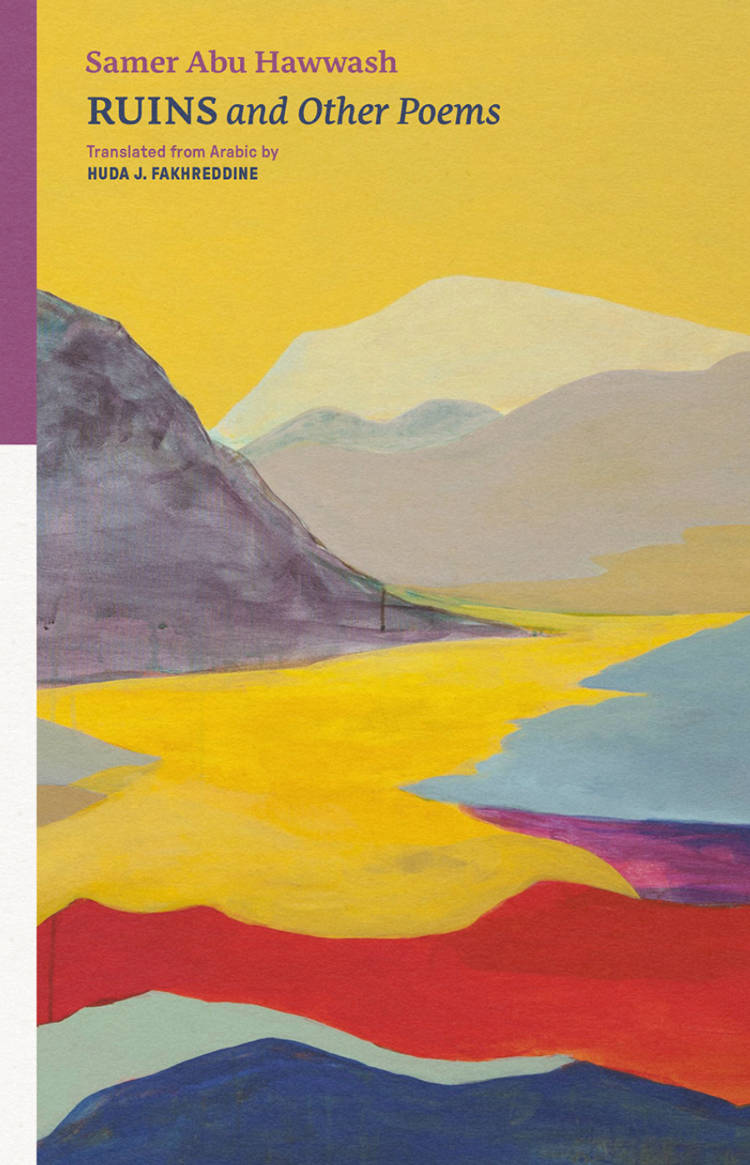
Ruins and Other Poems
Samer Abu Hawwash, Huda J. Fakhreddine
In these poems, Samer Abu Hawwash stands upon ancient and modern ruins, engaging with the archetypal Arabic qasida and its echoes in the present, set against a backdrop of exile, displacement, and genocide. The site of the ruin, the journey, and the return home are the three movements of the archetypal Arabic form with which Samer contends in his book-length poem.
Writing in and from the moment of crisis, the poet keeps returning to ruins, forfeiting the journey and the hope of return and resolution, rearranging the elements of poetry in the Arabic tradition in search of closure or consolation—in a gesture, a shadow, a memory, an object. The five poems that follow “Ruins” in this book root themselves in monumental loss. When “it no longer matters if anyone loves us” and “we will lose this war,” nothing remains but the poem, the witness, the signpost in the wasteland of history.
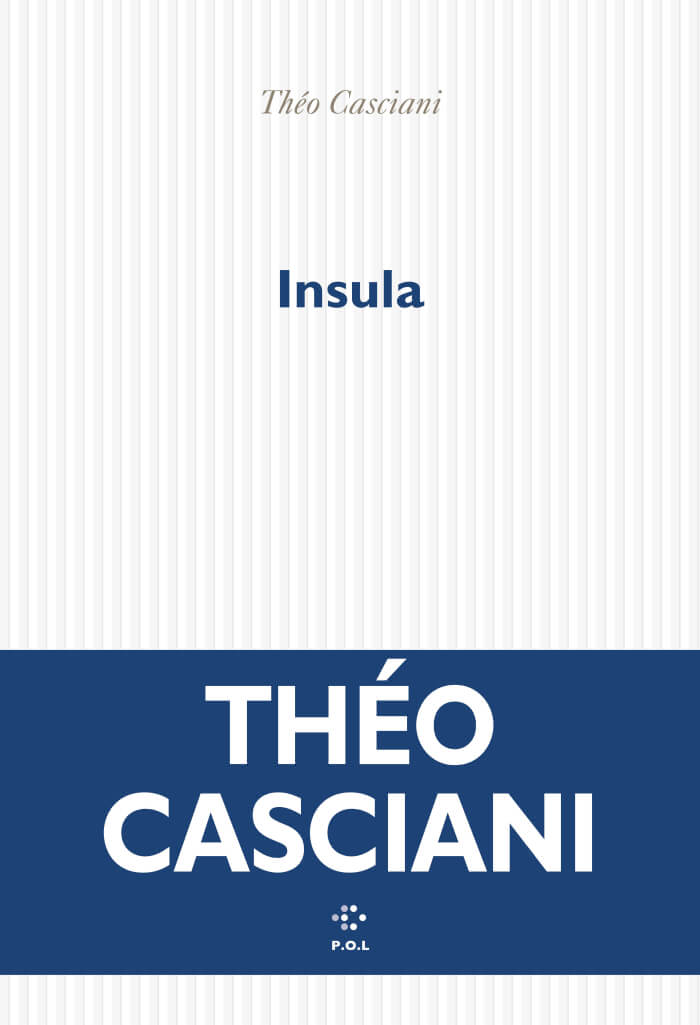
Insula
Insula est un roman d’anticipation aussi intime que spéculatif qui mêle autofiction, confession intime, esthétique queer, jeu vidéo, et une formidable vision apocalyptique du monde contemporain. Insula (île, en latin), c’est d’abord le nom d’un jeu clandestin de réalité augmentée d’un nouveau genre : il suffit d’ingérer une pilule stupéfiante et illégale pour accéder à la simulation. Théo, le narrateur, en apprend l’existence lors d’une fête de cruising queer, au sommet d’un immeuble désaffecté du centre de Londres, dans une atmosphère d’apocalypse. Un garçon s’effondre à ses pieds quelques minutes après avoir consommé la substance, et pleure des larmes de sperme. Mais Théo doit tout interrompre pour se rendre au chevet de son père mourant, dans un hôpital parisien. C’est le moment de la dernière nuit, du dernier souffle et des derniers aveux. Le mot insula revient, cette fois dans la bouche des médecins, pour désigner une partie flottante du cerveau ravagée par la maladie, comme une île qu’on a dans la tête. Alors que les médias annoncent la disparition de plusieurs personnes qui auraient pris une pilule d’insula, l’étau se resserre sur Théo qui se résout à son tour à prendre un cachet prohibé avec l’intuition que les avatars ne sont que des fantômes, et qu’il pourra ainsi retrouver son père dans l’autre monde.
Ce roman aux accents dantesques (vision d’un enfer digital qui n’est que le double du monde réel), entre vertige technologique et exploration du désir, est marqué par la pensée critique du réel et la pop culture (Final Fantasy, Kanye West). Il ouvre un univers parallèle pour raconter l’histoire d’une traversée intime, convoquer des époques, des territoires et des identités multiples, dans une seule et même histoire qui navigue entre témoignage et fantasme. Dystopie, histoire d’amour et de fantômes, enquête et cauchemar, Insula est un portail entre plusieurs dimensions, le vrai et le faux, le réel et le digital, la vie et la mort.
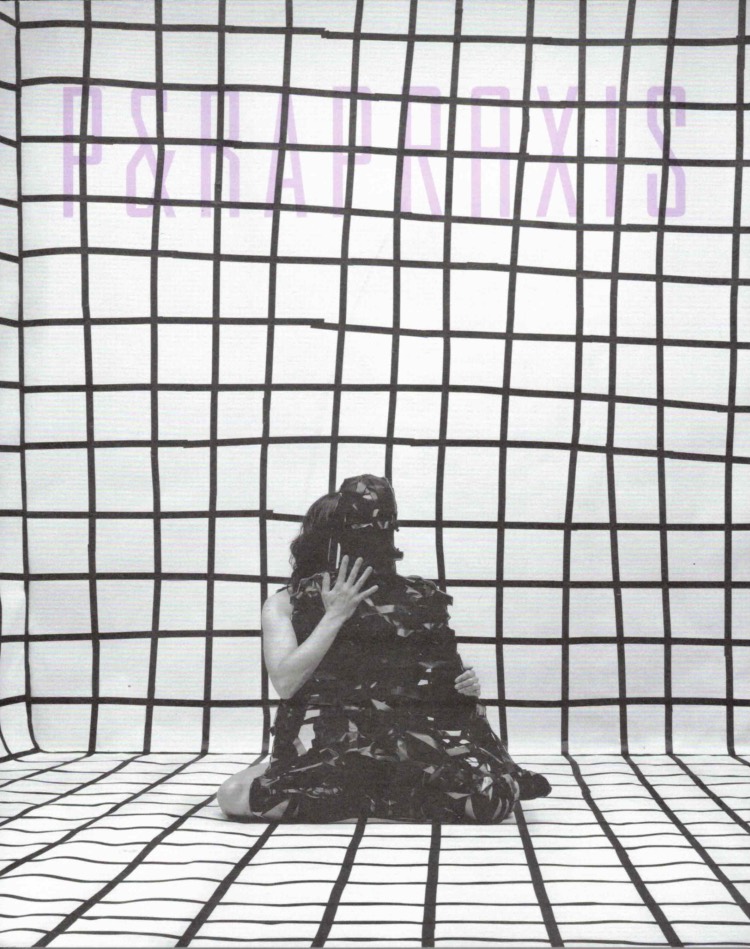
Parapraxis 07: Romance
It is a particularly unlovely time to be thinking about romance. The heart can be fickle, indulgent, its matters distracting, impractical. But in the heavy boots of our undesirable present, seized by colliding catastrophes, we ask: how do we get out of here? Can the simple math of desire plus futurity break us free? Or is this just a barely veiled expression of our longing for avoidance? When we declare that love is the answer, we often forget the ambivalence of which psychoanalysis warns: love emerges in tandem with hate. It is neither the antidote to aggression nor the basis of a coherent social order.
As a narrative structure, romance insists on the future. Whether it's with a new lover hoping to break the repetition of bad patterns, in emotional growth born of the analytic couple, or inside the tremulous energy of an insurgent crowd that makes yesterday seem historically distinct from tomorrow, romance threads time with the texture of meaning. Perhaps delusional, perhaps heroic in this audacious promise, romance must also always be a fantasy, an imagined structure that has not yet met its match in the present. While this fantasy is vital to our attachment to the world and each other, it can also provide the fuel for self-serving denial and disavowal. When we say that the youth are not fucking and that they don’t care about politics, these separate charges obscure the nature of their common cause. As the world attempts to disavow the death of the earth and the removal of its peoples, our sense of continuity flees; the receding horizon is not an open road, but a vanishing point. Whither romance?
Dependent. Detached. Trauma Bonded. The Incest Lobby. Revolution Against Romance. Reading for Love and Labor. Surrealist Bedfellows. Mad Love. Essays by Nadia Bou Ali, hannah baer, Moon Charania, Davey Davis, Kaleem Hawa, Anna Kornbluh, Thomas Ogden, and more.
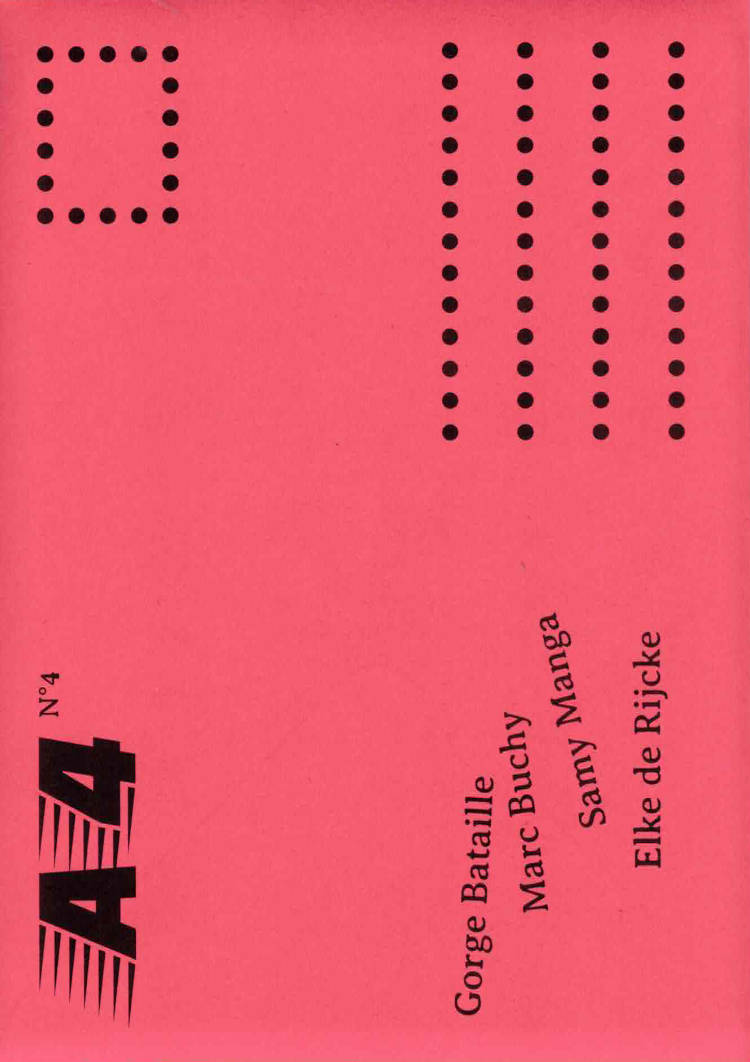
A4 review N°4
Gorge Bataille, Marc Buchy and 2 more
Founded in 2023, A4 is a poetry review which showcases and explores contemporary writings practices. Run by Littérature Supersport collective, the object is seen as the extension of their events. The review takes the form of 4 postcards which, when placed side-by-side, form an A4-sheet. A light (even precarious) format for literature that slips into the back pocket of pants and hangs on fridge doors. Each issue features unpublished texts by 4 authors. Wrapped in colors, A4 is distributed by post and available in good bookshops, in Brussels, Liège, Paris and Marseille.
This fourth issue presents texts by: Gorge Bataille, Marc Buchy, Samy Manga, Elke de Rijcke.
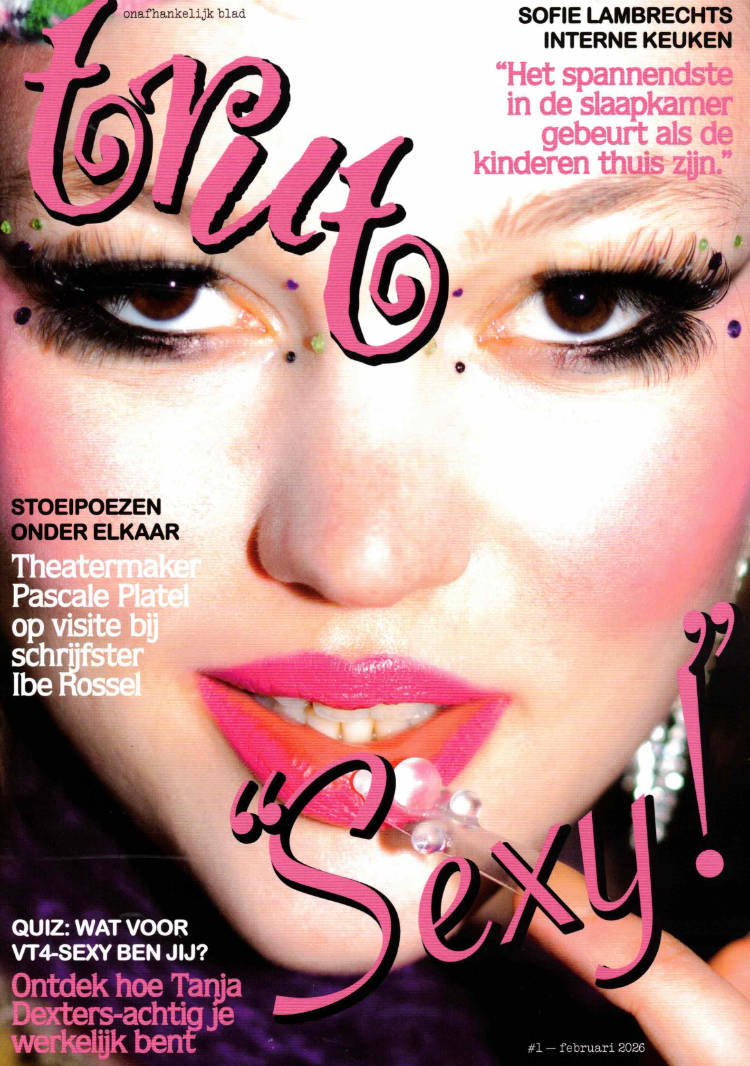
TRUT #1 : De Sexy Editie
TRUT is een exclusief fysiek print-magazine, humoristisch en cultuurkritisch, met een focus op de groteske campness van (Vlaamse) popcultuur. Met bijdragen van meer dan 20 jonge makers trachten ze popcultuur-curiosa opnieuw tastbaar te maken.
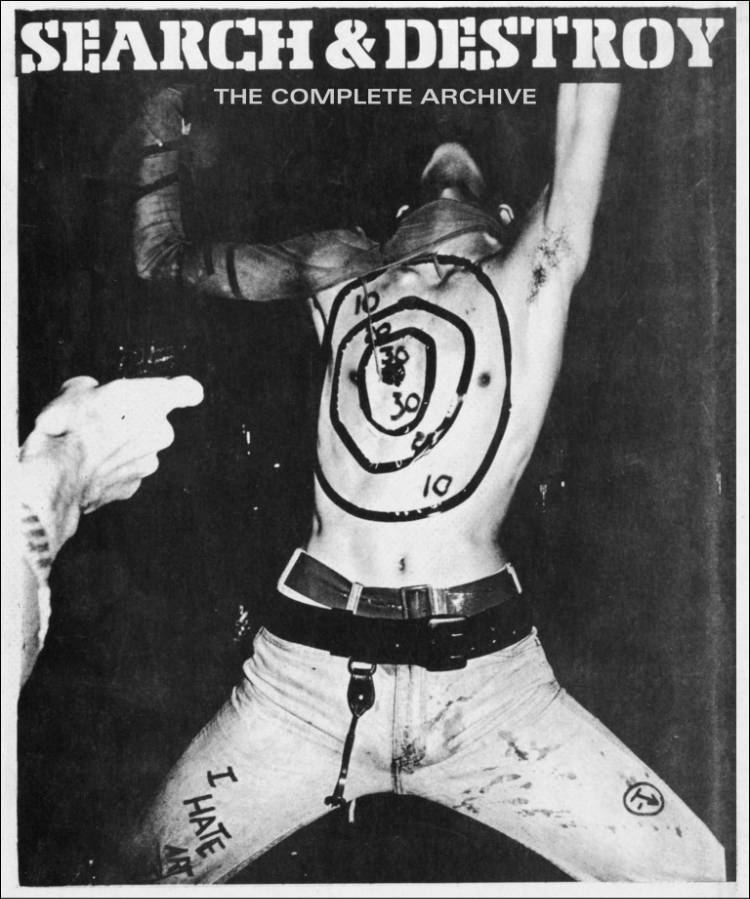
Search & Destroy: The Complete Archive
V. Vale, Cecily Chen and 1 more
The collected run of the groundbreaking and iconoclastic zine.
From 1977 to 1979, Search & Destroy chronicled the birth of San Francisco's punk scene with an intensity and vision that transformed music journalism. Now, for the first time, every issue of this seminal publication has been collected and meticulously restored in one definitive volume.
Launched with a $100 loan from Allen Ginsberg and Lawrence Ferlinghetti, Search & Destroy was the nerve center of West Coast punk culture. V. Vale and his motley cast of contributors struck a new form of guerrilla journalism with an aesthetic and attitude that was as raw and uncompromising as the music itself.
Search & Destroy: The Complete Archive captures the texture and tension of a scene in flux through stark photography, radical design, and unfiltered interviews with legends such as William S. Burroughs, Throbbing Gristle, the Dead Kennedys, Suicide, and Negative Trend. This collected edition also features retrospective writing on the legacy of Search & Destroy, its influence on design and culture, and V. Vale's work as a publisher, researcher, and archivist.
V. Vale is an American editor, writer, interviewer, musician and SF Bay legend. He is the publisher and primary contributor to books and magazines published by his company, RE/Search Publications.
Cecily Chen is a writer and translator from Beijing, China. She is currently completing her PhD in English at the University of Chicago, where she writes about the “minor archive” of Asian American experimentalism, Marxist aesthetics, and gender and sexuality. You can find her writing at The Poetry Project, Entropy, and the tiny. She also edits poetry for Chicago Review.
Mitch Anzuoni is the founding editor of Inpatient Press and its translation imprint, Mercurial Editions. His writing has appeared in Harper's and Rhizome.
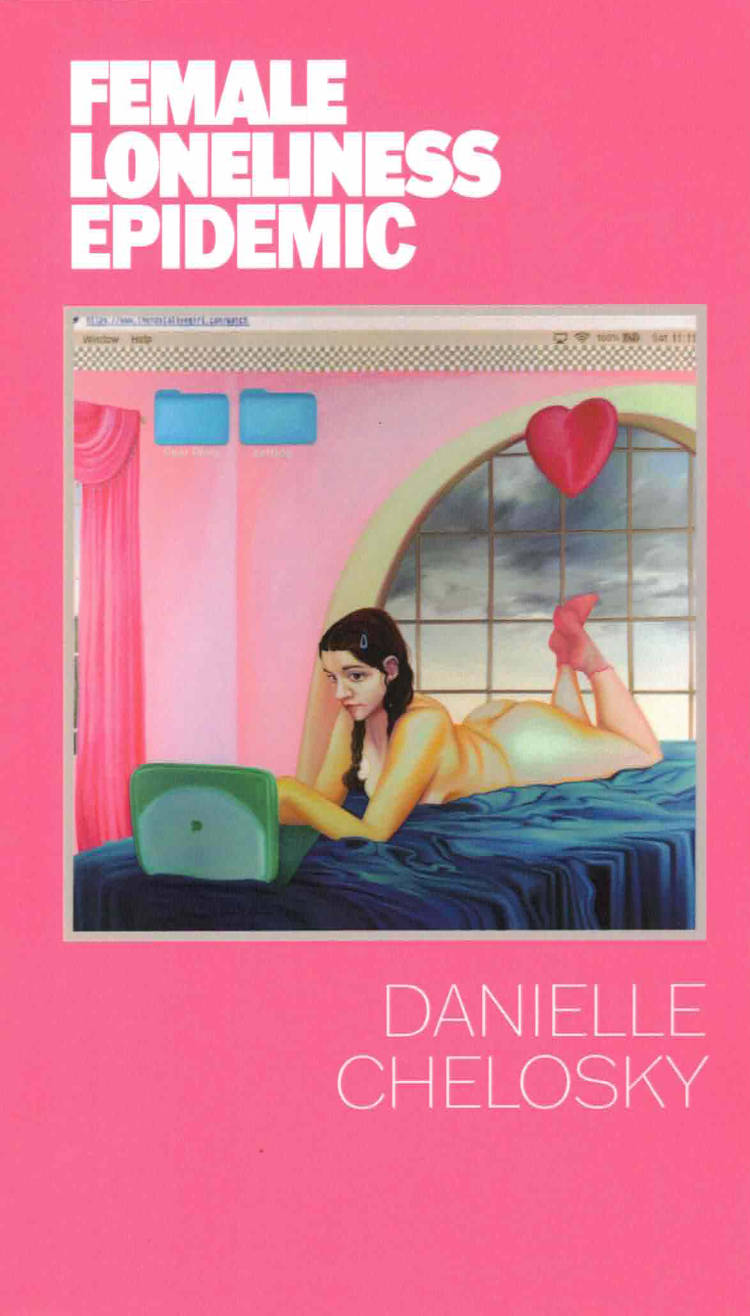
Female Loneliness Epidemic
Soundcloud rapper boyfriends. AA rendezvous.
Singer-songwriter sweethearts. Toxic e-boys.
Suicide pacts. NYU poets.
Flirty coworkers. ASMR girls.
Porn-addicted paramours.
Catholic cliques. Imaginary simps.
Welcome to the world of
FEMALE LONELINESS EPIDEMIC.
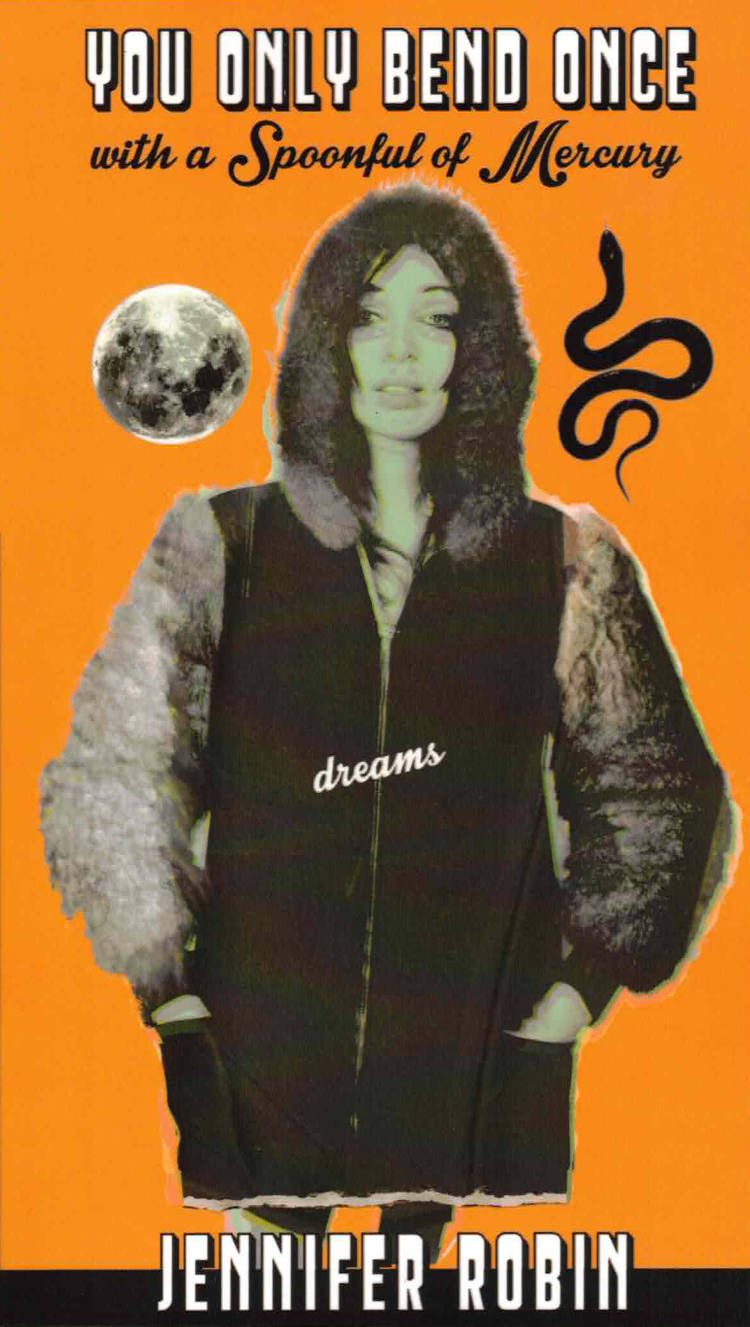
You Only Bend Once with a Spoonful of Mercury
Do you feel it? I'm holding your hand. Come with me. Look! There's a mirror, many mirrors! They are watching us, but we don't have to care. This night belongs to us. This infinity. Come! ... World! Just watch us...as we prowl the arcades of fallen memory...
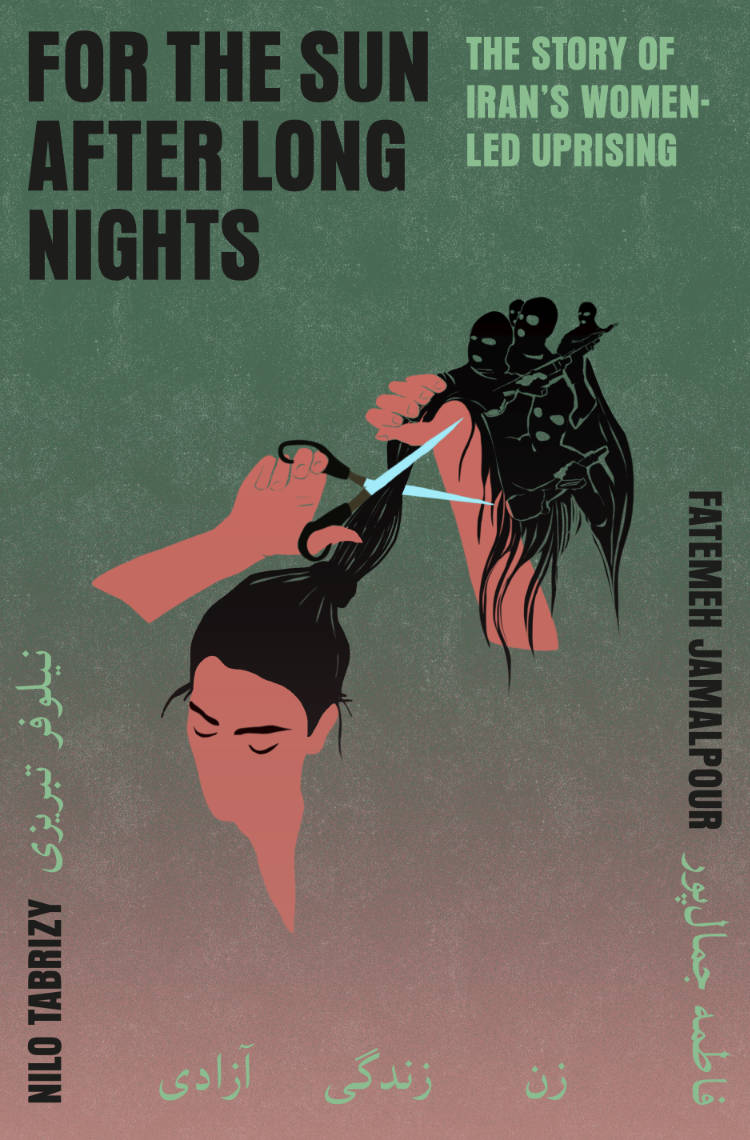
For the Sun After Long Nights: The Story of Iran's Women-Led Uprising
Fatemeh Jamalpour, Nilo Tabrizy
In September 2022, a young Kurdish woman, Mahsa Jîna Amini, died after being beaten by police officers who arrested her for not adhering to the Islamic Republic’s dress code. Her death galvanized thousands of Iranians—mostly women—who took to the streets in one of the country’s largest uprisings in decades: the Woman, Life, Freedom movement.
Despite the threat of imprisonment or death for her work as a journalist covering political unrest, state repression, and grassroots activism in Iran—which has led to multiple interrogation sessions and arrests—Fatemeh Jamalpour joined the throngs of people fighting to topple Iran’s religious extremist regime. And across the globe, Nilo Tabrizy, who emigrated from Iran with her family as a child, covered the protests and state violence, knowing that spotlighting the women on the front lines and the systemic injustice of the Iranian government meant she would not be able to safely return to Iran in the future.
Though they had met only once in person, Nilo and Fatemeh corresponded constantly, often through encrypted platforms to protect Fatemeh. As the protests continued to unfold, the sense of sisterhood they shared led them to embark on an effort to document the spirit and legacy of the movement, and the history, geopolitics, and influences that led to this point. At once deeply personal and assiduously reported, For the Sun After Long Nights offers two perspectives on what it means to cover the stories that are closest to one’s heart—both in the forefront and from afar.
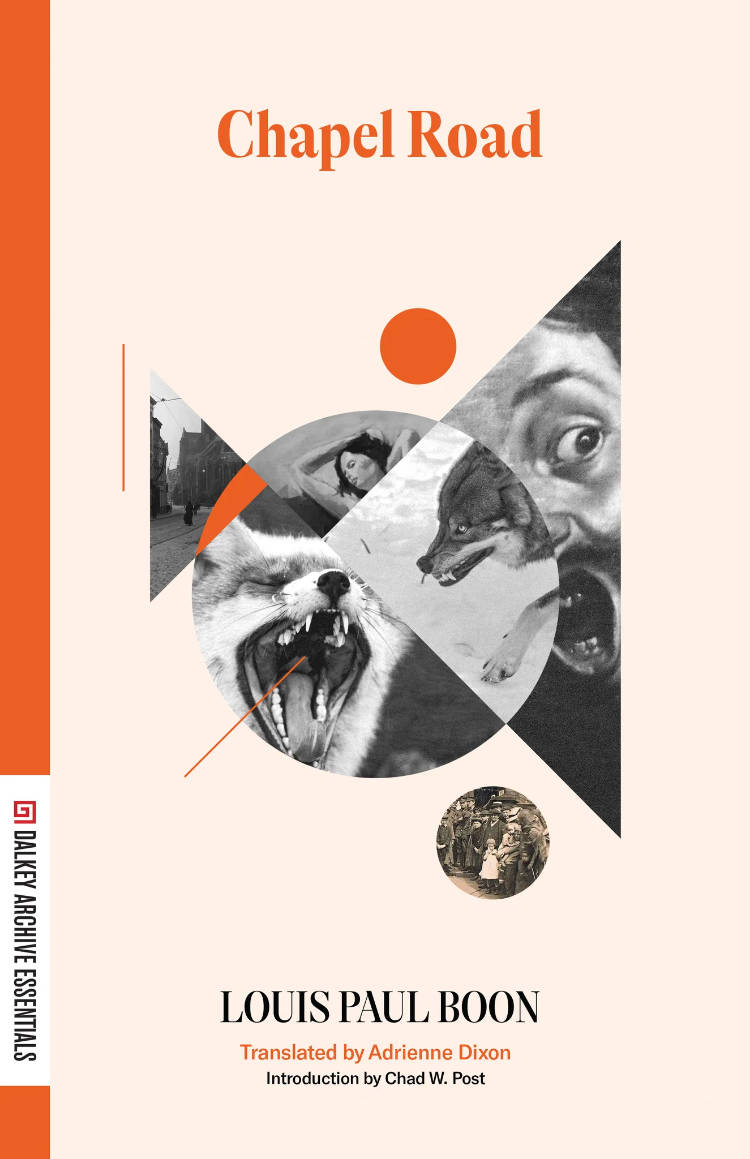
Chapel Road
Louis Paul Boon, Adrienne Dixon
A meta-textual matryoshka doll of a novel from a renowned voice in Flemish literature.
The twisting narrative of Louis Paul Boon's 1953 masterpiece follows a young girl named Ondine and her brother Valeer, born into poverty at the turn of the century in the industrial city of Aalst, Belgium. Ondine's coming of age is interwoven with a reworking of the medieval fable of Reynard the Fox, as well as a metanarrative in which an author named Louis Paul Boon and his colorful group of friends discuss the writing of a novel named Chapel Road, debating how best to present Ondine's story.
Groundbreaking among post-war Dutch literature for its postmodern structure and irreverent, dialect-studded use of language, Boon's allegory of the rise and fall of socialism in Flanders presents his theory of the novel as a type of "illegal writing" where digressions are far more important than a carefully constructed plot.
Introduction by Chad W. Post
Louis Paul Boon (1912-1979) started out as a house painter but went on to become the author of a large and rich oeuvre spanning several genres: from the compelling historical epics he composed later in life to his sharp, witty work as a newspaper columnist and his tongue-in-cheek, scabrous novels. Boon is one of the most important writers of Flemish literature in the twentieth century, a keen observer of society, the individual and the interplay between them.
Adrienne Dixon is a translator of Dutch and Flemish literature.
Chad W. Post is the founder and publisher of Open Letter Books. He is also the editorial director of Dalkey Archive Press, where he was formerly the associate director. Over the course of his career, he founded the Translation Database, the Best Translated Book Awards, multiple literary podcasts (Two Month Review, Three Percent), the Three Percent website, and currently writes two newsletters: The Three Percent Problem, and Mining the Dalkey Archive. He is also the author of The Three Percent Problem: Rants and Responses on Publishing, Translation, and the Future of Reading. His articles and book reviews have appeared in a range of publications. In 2018 he received the Words Without Borders Ottaway Award for the Promotion of International Literature.
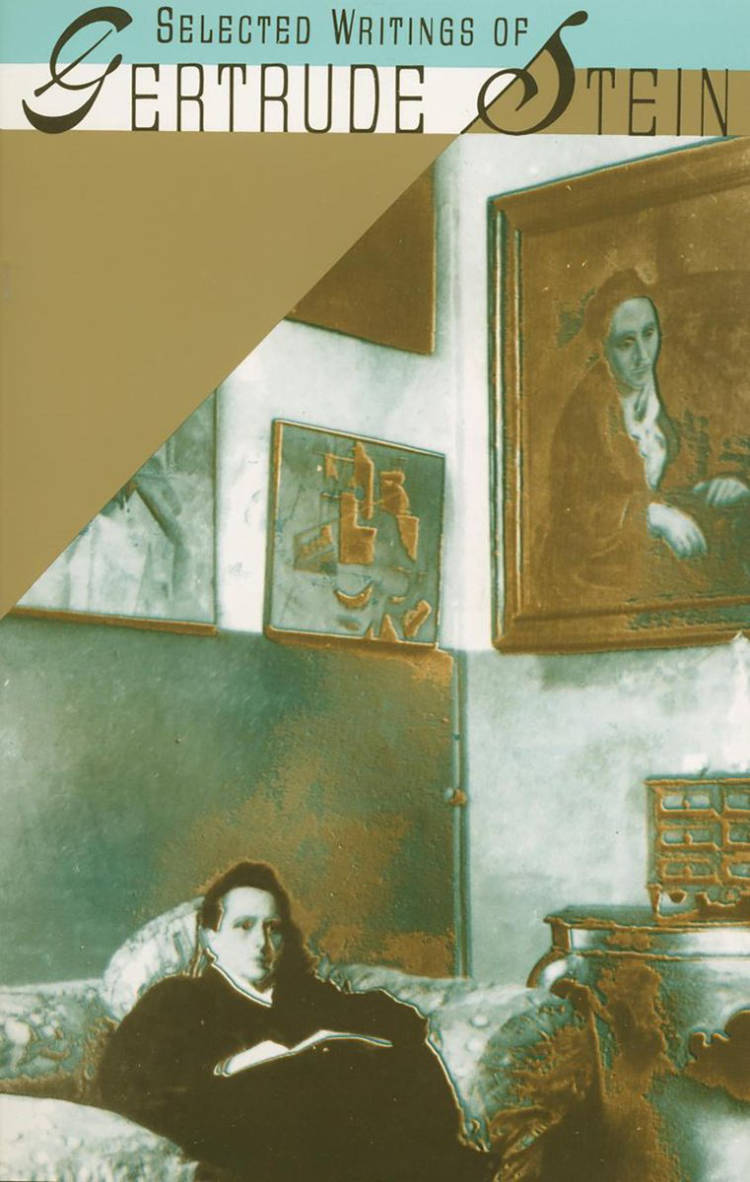
Selected Writings of Gertrude Stein
This collection, a retrospective exhibit of the work of a woman who created a unique place for herself in the world of letters, contains a sample of practically every period and every manner in Gertrude Stein’s career. It includes The Autobiography of Alice B. Toklas in its entirety; selected passages from The Making of Americans; "Melanctha"from Three Lives; portraits of the painters Cezanne, Matisse, and Picasso; Tender Buttons; the opera Four Saints in Three Acts; and poem, plays, lectures, articles, sketches, and a generous portion of her famous book on the Occupation of France, Wars I Have Seen.
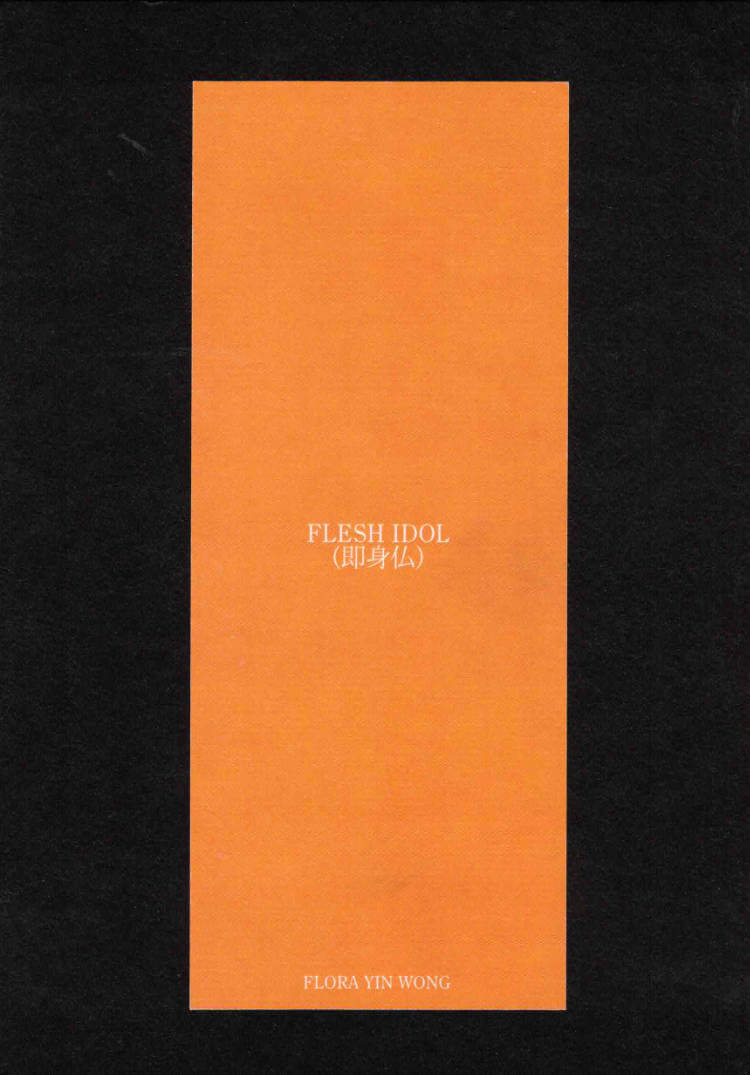
Flesh Idol
Part historical and folkloric research, part auto-fiction, FLESH IDOL draws from a solitary journey through the Holy Mountains last winter to find meaning in suffering. A parallel search for internal solace, consideration of the voluntary abandonment of the body on this plane, and respect of the holy men who achieved it.
Delving into the fog-covered terrain of Yamagata Prefecture, the book documents the author’s passage taken in order to pay homage to the monks of Sokushinbutsu - the now outlawed ritual practice of self-mummification in the Japanese mountain religion of Shugendō.
As the second title to come from Doyenne founder and artist Flora Yin Wong, the new book - first conceived at the start of the year and released to coincide with the end of 2025 - is an abstract retelling of a personal journey, mytho-historical facts, their geographical locations and local lore under the domain of the ascetic religious sect.
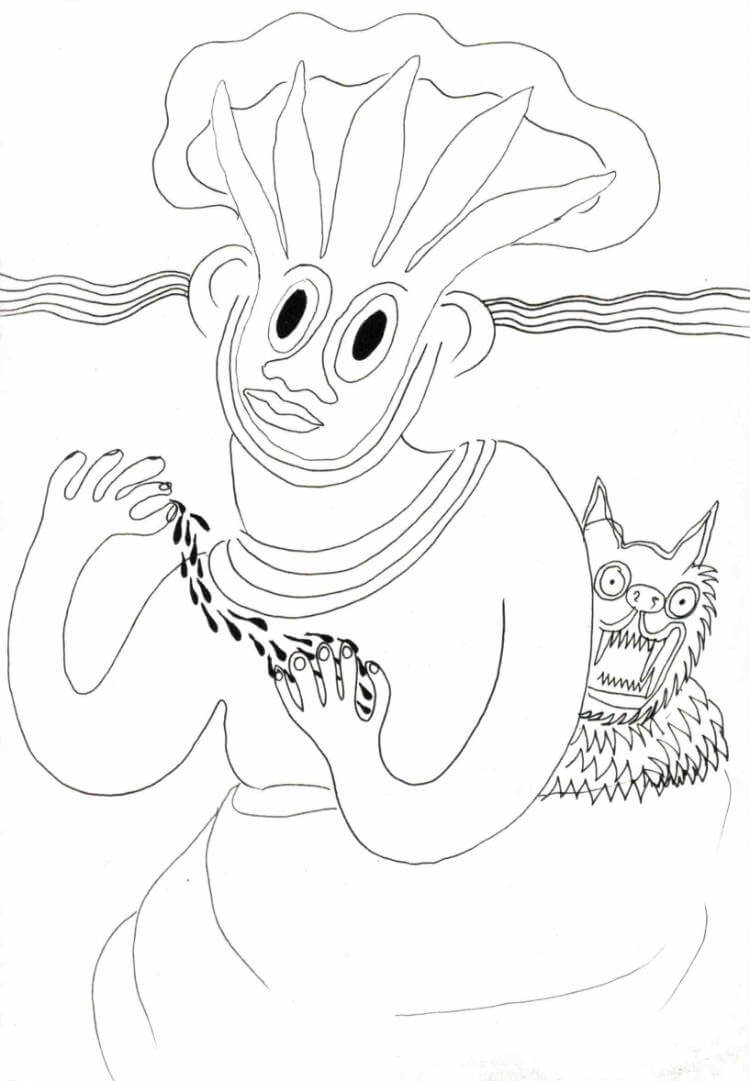
N° 6 : Soundshine, Moki Cherry
A Congregation of Clouds assembles eight artistic voices in the form of printed matter. These publications do not speak in unison; instead, they drift, accumulate, and resist.
To congregate is to gather—sometimes in quiet reflection, sometimes in protest, sometimes in ritual. Clouds do not ask permission to form. They appear when conditions allow, under a shared sky, without needing to resolve into one.
Edited and designed by Tony Cederteg

Worms Issue 11: Faith & Worship
Caitlin McLoughlin, Clem Macleod and 2 more
The theme for each issue of Worms tends to emerge steadily as gathering clouds. Often there is a nebulous sense of something that we want to explore, unripe fruits plucked from things we have read and heard and pocketed without much thought for later examination. It’s only when our pockets grow heavy, when ideas amass into something worthy of a second glance, that we start to name them. In the case of this one, our eleventh issue, its theme has its roots in the previous. The Love Issue—released in July 2025—explored love in all its guises: radical, complex, beautiful, violent. But in our study of the heart’s infinite mysteries there lurked an undercurrent of something else. Faith, close to love, was a persistent reoccurrence. Devotion, strength, clarity, refuge – these emerged as dimensions of love that can also be mapped across a search for something beyond the material. Worms 11: Faith & Worship began here.
FEATURING: Lamorna Ash, Clare Carlisle, Fanny Howe, Chris Kraus, Eileen Myles, Kazim Ali, Fiona Alison Duncan, Lauren J. Joseph, Olivia Laing, aja monet, Charlotte Northall, Arpan Roy, Noura Salahaldeen, Sarah Schulman, Michelle Tea.
CONTRIBUTORS: Temperance Aghamohammadi, Alaa Alqaisi, RZ Baschir, Sarah Burgoyne, F. Tibiezas Dager, Giulia De Vita, Helena Geilinger, Misha Honcharenko, Courtney Ann LaFaive, Ozziline Mercedes, Nicko Mroczkowski, Evie Reckendrees, Charlie Stuip, Clár Tillekens, Phoenix Yemi.
PHOTOGRAPHERS: Antonia Adomako, Eve Delaney, Jen Dessinger, Isabel Maccarthy, Britteny Najar, Katarzyna Postaremczak, Honor Weatherall.
ILLUSTRATORS & ARTISTS: Clara Esborraz, Eric Hesselbo, Lily Makoski, Samantha Rosenwald, Ivy Shepherd-Barron, Mary Watt, Shu Hua Xiong.
EDITORS: Caitlin McLoughlin, P. Eldridge, Clem MacLeod, Arcadia Molinas.
Proof Reader: Annalise June Kamegawa.
DESIGN: Caitlin McLoughlin & Clem MacLeod.
RUNWAY JOURNAL SUPPLEMENT
Contributors: Wassila Abboud, Anna Carlsson, Alexander Cigana, Bree Turner, Amelia Zhou.
Editors: Debris Facility, Ena Grozdanic, Victoria Pham.
Runway Supplement Design: SM Studio (Safiye Gray & Molly Cranston).
Cover Credits: Photo of Fanny Howe by Lynn Christoffers, Illustration by Mary Watt.
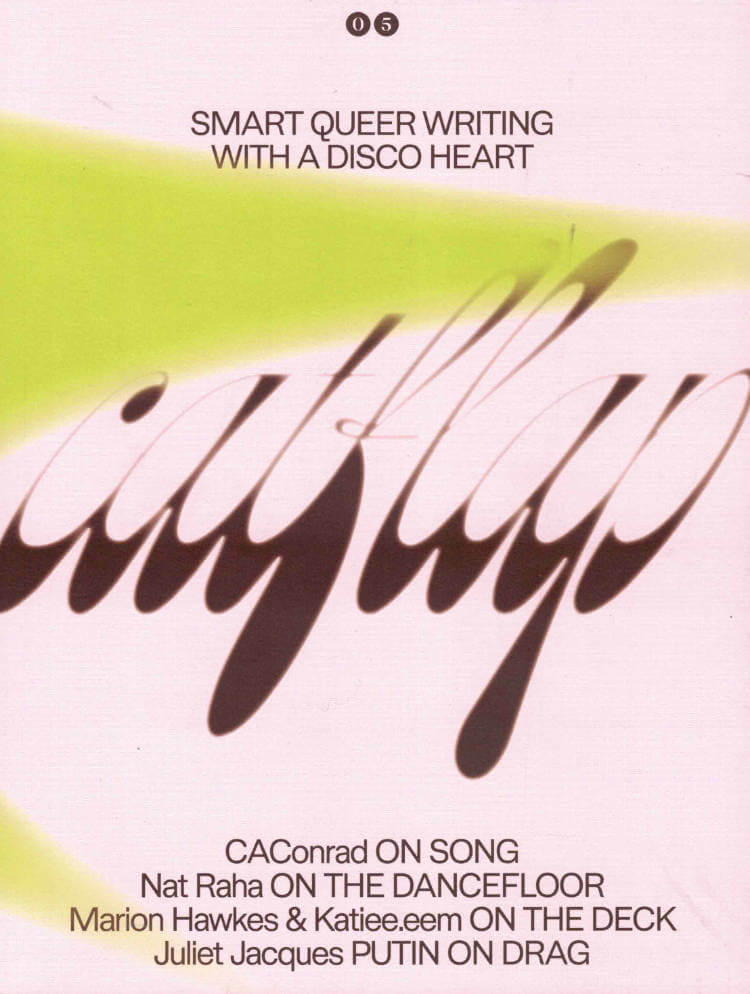
Catflap Issue 05
catflap is the annual publication of new queer writing from Outburst Arts, a hot mix of open call submissions, curated interviews and smart queer writing with a disco heart.
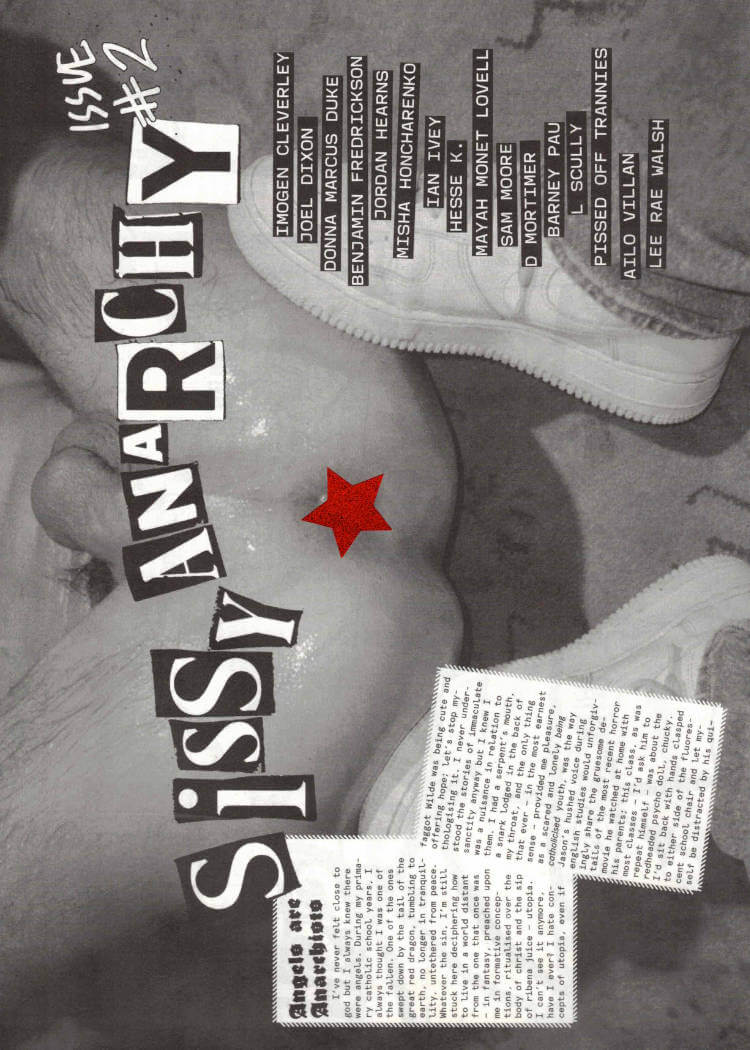
Sissy Anarchy #2
Featuring the photography of BENJAMIN FREDRICKSON 👅
This issue of SISSY ANARCHY brings together an incredible cohort of sissies; who give up their environment, their daily encoded stances, to define with me here — in what has become such a tender edition of SISSY ANARCHY — a world where boundaries are stretched and obliterated.
Contributions featuring Imogen Cleverley, Joel Dixon, Donna Marcus Duke, Benjamin Fredrickson, Jordan Hearns, Misha Honcharenko, Ian Ivey, Hesse K, Mayah Monet Lovell, Sam Moore, D Mortimer, Barney Pau, L Scully, Pissed Off Trannies, Ailo Villan, Lee Rae Walsh
Founding Editor: Pierce Eldridge
Design: Caitlin Mcloughlin